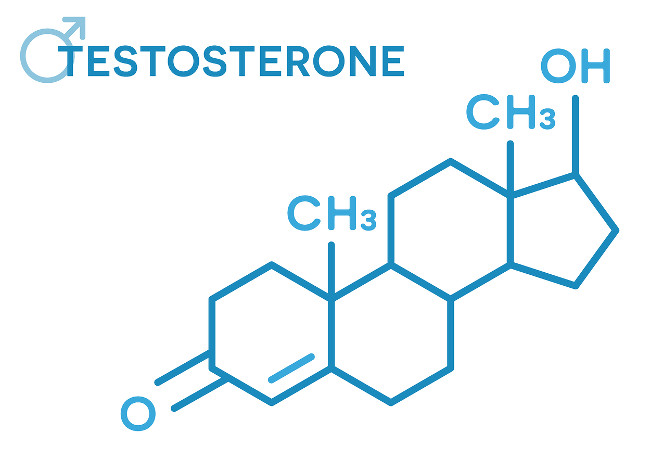It has been said that life really begins at fifty. The confidence of age coupled with time freed as children fly the nest, creates the perfect recipe for a new lease of life – brightened with a sunnier outlook than ever before. This is the dream, yet many men reaching middle age find they are feeling run down, lacking in motivation, and suffering from mood swings and insomnia. Many men will lay the blame upon the stress of work and fast pace of life.
Fortunately, the explanation may be much simpler – and easier to fix. The ‘andropause’ is perhaps the lesser known little brother of the menopause, but it can have a very real impact on men’s lives. Luckily, also like the menopause, simply balancing your hormones can leave one feeling better than ever.
Low male testosterone (LMT) effects millions of men. Chances of LMT increase with age, so that one in five men aged between 60 and 80 are likely to suffer. However, the ‘male menopause’ is yet to become part of an open dialogue in a way helpful to the identification of symptoms, otherwise easily brushed under the carpet. By clueing yourself up on these symptoms, you can ensure you remain at the height of your game as you age, and reading through this webpage, TRT UK Frequently asked Questions, is a great place to start.

Has middle age afforded you that final promotion, reaching the heights of a career trajectory you had mapped out since your early twenties? Are you now left wishing you still had the energy and zest of your twenties to make the most of it? Fatigue is one of the most common symptoms of low testosterone, as the hormone is directly connected to your energy levels. If you stay stocked up on salads, are best friends with the gym, and make sure to get a solid eight hours – yet still start the day feeling like you have recently completed a marathon – then investigating the cause of this fatigue should be a priority.
It isn’t just fatigue which could prevent you successfully climbing the career ladder, but a reluctance to get climbing all together. Low motivation and focus are other effects of LMT, so tackling this with testosterone replacement therapy (TRT) can reignite the fire in your career. Who wouldn’t want to have more drive, greater attention to detail, and ultimately rediscovered passion, for their career?
It may even be that it is your relationship taking the hit, rather than your work. Decreased libido or erectile dysfunction can often be a result of LMT, especially if you find libido has suddenly and drastically decreased. LMT can also trigger mood changes, often the kind you may not perceive yourself. Is a loved one complaining about increased irritability, or do you find your mood suddenly dipping, feeling subdued and downbeat for no discernible reason? LMT may be the issue, and TRT the cure. Although raising such issues with a doctor can be a daunting prospect, participating in the conversation around male mental health takes an important step to demonstrating that ‘it’s okay not to be okay’. In fact, links have been found between depression and LMT, so seeking help is critical. There are online TRT clinics that can easily determine if you suffer from LMT and they will even help you find specific solutions that fit your condition.

On the other hand, you may still be feeling top notch with LMT. However, this does not mean you are not a sufferer, particularly if it is, in fact, a glance in the mirror which fills you with dread. Lamenting recent baldness? Testosterone levels effect the thickness and strength of your hair, so thinning and balding could be a sign of LMT. Similarly, if you have begun to struggle with your weight, LMT could be the cause. Male weight levels are linked to the metabolism, with less testosterone meaning a slower metabolism and noticeable weight gain.
If these symptoms ring true, it couldn’t be easier to reach diagnosis. A simple blood test from your GP can identify your testosterone level, so just make sure to ask for it. The answers could be there, now you know where to look. Testosterone is measured in nanograms per decilitre (ng/dl), with the normal level for men reaching between 270-1070 ng/dl. Decreasing testosterone is a normal part of the aging process after you’ve reached thirty, but if it is falling by more than around 1% per year you are more likely to start suffering adverse effects. The only way to know for sure is to request a test, and tackle the results.






















